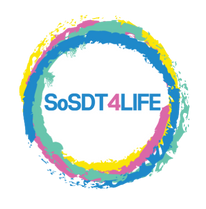Cancer treatments have advanced significantly over the past decades, and one of the most promising breakthroughs has been the development of targeted chemotherapy. Unlike traditional chemotherapy, which often affects healthy cells alongside cancer cells, targeted chemotherapy homes in on cancer cells directly, minimizing collateral damage and maximizing effectiveness. At SoSDT4Life, we’re committed to exploring innovative approaches like targeted chemotherapy that offer greater precision and fewer side effects for our patients.
In this blog, we’ll delve into how targeted chemotherapy works, its benefits, and its transformative role in the future of cancer treatment.
What is Targeted Chemotherapy?
Targeted chemotherapy focuses on the molecules and pathways essential for cancer cell survival and growth. While traditional chemotherapy affects all rapidly dividing cells (including healthy ones), targeted therapies identify particular proteins, genes, or other factors unique to cancer cells. By targeting these molecular drivers, this approach aims to halt or slow the growth of cancerous cells while leaving surrounding healthy tissue relatively unharmed.
Targeted chemotherapy can be used alone or alongside other cancer treatments, including surgery, radiation, and immunotherapy, to create a tailored, multifaceted approach.
How Targeted Chemotherapy Works?
Targeted chemotherapy works through the use of specialized drugs, often referred to as molecularly targeted drugs. These drugs can be categorized broadly into two types:
- Small-Molecule Drugs: These drugs can easily enter cells and work by interrupting specific cell functions. They are commonly used to block signals within cancer cells that cause them to grow uncontrollably.
- Monoclonal Antibodies: These are engineered antibodies designed to attach themselves to specific proteins on the surface of cancer cells. Once bound, these antibodies can disrupt the cancer cells’ growth, mark them for destruction by the immune system, or deliver a toxic substance directly to the cell.
Both types of drugs can specifically target cancer cells by focusing on unique molecular markers found only in cancerous cells. This precision greatly improves the efficacy of the treatment while reducing side effects.
The Advantages of Targeted Chemotherapy
Targeted chemotherapy offers several distinct advantages over traditional chemotherapy:
- Reduced Side Effects: Traditional chemotherapy often results in many side effects, such as nausea, fatigue, and hair loss, because it impacts healthy cells alongside cancer cells. Targeted therapies minimize these side effects by sparing healthy cells and focusing on the cancerous ones.
- Enhanced Efficacy: By zeroing in on cancer-specific markers, targeted chemotherapy can achieve better results at lower doses, thus making the treatment more effective while keeping toxicity levels manageable.
- Personalized Treatment: Targeted chemotherapy can be customized to the specific genetic profile of each patient’s cancer, providing a truly personalized treatment plan. This is particularly beneficial for cancers with genetic mutations that can be directly targeted.
- Increased Survival Rates: Studies have shown that targeted chemotherapy can improve survival rates, especially when combined with other treatments. This dual-action approach increases the likelihood of successful treatment, even for aggressive or late-stage cancers.
Targeted Chemotherapy in Action
To better understand the power of targeted chemotherapy, let’s consider a few of its applications across different types of cancers:
- Breast Cancer: HER2-positive breast cancer, which overproduces the HER2 protein, can be effectively treated with targeted drugs like trastuzumab (Herceptin). These drugs attach to the HER2 protein and prevent the growth of cancer cells, reducing the risk of cancer progression.
- Lung Cancer: Targeted therapies like erlotinib (Tarceva) have shown significant success in treating non-small cell lung cancer (NSCLC) with specific genetic mutations. These drugs can stop cancer progression and increase survival rates by inhibiting certain enzymes that promote tumor growth.
- Chronic Myeloid Leukemia (CML): Imatinib (Gleevec), a pioneering targeted therapy, has revolutionized the treatment of CML by inhibiting the BCR-ABL protein responsible for this cancer’s growth. It has transformed a once-lethal disease into a manageable chronic condition for many patients.
The Future of Targeted Chemotherapy at SoSDT4Life
As research advances, targeted chemotherapy is expected to become even more precise. At SoSDT4Life, our commitment to innovation means that we continuously explore and adopt cutting-edge therapies, ensuring our patients have access to the best treatment options available.
Combining targeted chemotherapy with other therapies, such as SonoDynamic Therapy (SDT) or immunotherapy, has shown immense promise. This multi-therapy approach can improve the effectiveness of each treatment, offering patients a more comprehensive and robust defense against cancer.
Challenges and Considerations
While targeted chemotherapy represents a major step forward, it’s not without challenges:
- Drug Resistance: Cancer cells can sometimes mutate and become resistant to targeted therapies. Researchers are actively studying this phenomenon to understand how to overcome it.
- Not All Cancers Are Targetable: Not all types of cancer have specific molecular targets, making it impossible to use targeted chemotherapy in certain cases.
- Cost and Accessibility: Advanced therapies can be costly, but centers like SoSDT4Life strive to make these treatments accessible to as many patients as possible by integrating them into comprehensive, individualized treatment plans.
Conclusion: A Precise Approach for a Brighter Future
Targeted chemotherapy is changing the landscape of cancer treatment by offering a precise, effective, and more patient-friendly alternative to traditional chemotherapy. At SoSDT4Life, we’re proud to provide this innovative treatment option, empowering our patients to fight cancer with the most advanced tools available.
If you or a loved one are considering cancer treatment, reach out to SoSDT4Life to learn more about our targeted chemotherapy options and how we can tailor a treatment plan to suit your unique needs.

Leave A Comment
You must be logged in to post a comment.